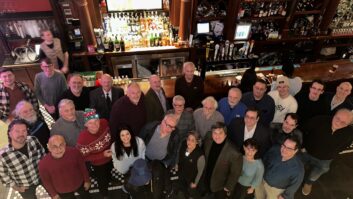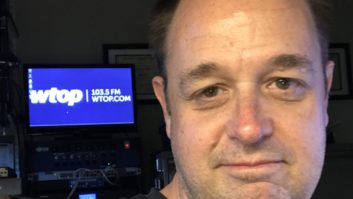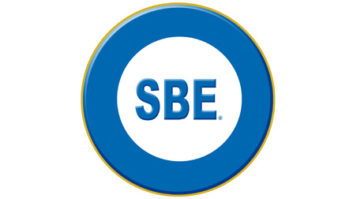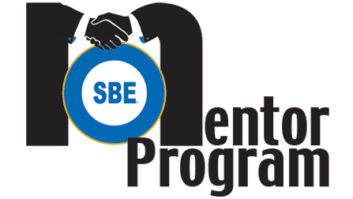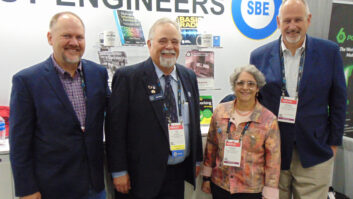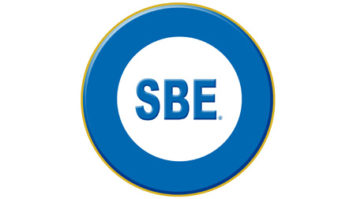The Society of Broadcast Engineers announced the candidates for its 2016 board elections in June. Ahead of voting, which begins next week, we�re profiling the candidates to learn more about those on the ballot.�
Brian Oliger is a candidate for an at-large seat on the SBE board of directors. He is the manager of news and broadcaster technology for Hubbard Radio in Washington�s WTOP(FM) and WFED(AM). Oliger has been an SBE member for 14 years and is certified CBT, CBNE.
��
Radio: If elected, what would you like to see SBE do differently than it does now?
Oliger: The SBE doesn�t need any major changes or course corrections, but I think priorities should include expanding membership by recruiting technical professionals from all media, continue to encourage and support members� ongoing professional development through education and certification, expand areas of education and certification to include disciplines such as BC/DR and project management, and encourage participation in the local SBE chapters.
Radio: The FCC has asked for comment on whether there is an increasing spectrum noise problem and if so, what it should do about it. How would you answer that?
Oliger: The SBE has been concerned about the increase in ambient noise, particularly in the AM band, for some time and has been consistently urging the FCC to investigate the situation. I�m pleased by the Commission�s recent public notice announcing its intent to study the problem through its Technical Advisory Council, and I believe that when the results of that study are published, it will show that there has been a significant increase in RF ambient noise in the past 20-25 years, and that it is adversely affecting the AM band, in particular. AM operators are facing unprecedented challenges in the marketplace, and now they�re being further handcuffed by interference to their distribution channels from many RF sources that didn�t exist a generation ago. SBE General Counsel Chris Imlay has advocated that the commission regulate RF device emissions prior to the point of sale. I support that position because the current protections in Part 15 and Part 18 are clearly no longer adequate.
Radio: Should SBE play a more active role in technical standards-setting for issues like digital radio? Why or why not?
Oliger: Yes, I�d like to see the society take a more active voice in contributing to the study and establishment of technical standards. Our members represent a broad segment of the broadcast engineering industry and have a huge accumulated knowledge base in a wide range of technical disciplines. We can add a lot to the detailed, nuts-and-bolts discussion of standards and practices. Many of our members are also members of SMPTE, AES and other technical organizations, and they may be able to help open the door for more SBE involvement. This involvement would reflect well on our organization as a whole and on our individual members.
�Radio: For decades we�ve heard the question �Where will the next generation of broadcast engineers come from?� What can SBE do, that it hasn�t done already?
Oliger: SBE�s Mentor Program is a great way for our experienced members to hand on their knowledge and experience to younger engineers just getting into the field, and showcases our organization�s commitment to insuring our field has a bright future full of young, smart, dedicated engineers. But we can always do more, and I think one of the best ways would be for SBE to encourage local chapters to do outreach in their own backyards, since they know what technical schools and college programs are available in their areas. Inviting students to attend an SBE chapter meeting or networking event would be a great way to welcome them and show them why we love this particular field of engineering so much. Supporting members who would like to teach a course at a local vocational school or community college is another way. Finally, the SBE leadership Development Course is another great way to help young engineers just breaking into the field to develop the non-technical, interpersonal skills that will help them advance in their careers.
Radio: What else would you like voters to know about yourself or your stand on industry issues?
Oliger: As a chapter vice-chair [SBE Chapter 37], I�m a big believer that the strength of SBE as an organization lies in its local chapters. For many of our members, the local chapter is the face of the organization, and encouraging and supporting them to the greatest degree possible should continue to be a high priority.
Additionally, I was a member of the FCC�s Communications Security, Reliability and Interoperability Council III, and have been on the EAS Working Groups for CSRIC IV and V. I�m also a member of the U.S. Communications Sector Coordinating Council, the Media Industry Crisis Preparedness Roundtable, the National Press Club and the Radio-Television Digital News Association.
�
The full slate of candidates for both officers and at-large board members can be found�here.�Read more candidate profiles�here.
The election will take place July 25 through Aug. 25.
�





